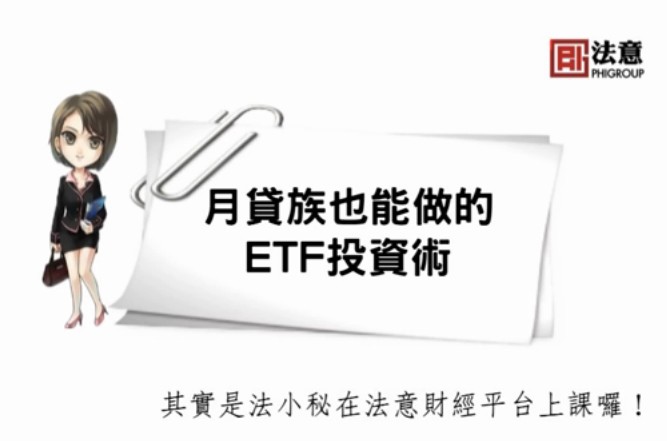Feb 27th 2009
From the Economist Intelligence Unit ViewsWire
Despite rising investor unease in Ukraine, the cabinet is in no hurry to adopt a credible budget
火燒眉毛還不慌不亂
Ukraine insists it has the funds to avoid default, in the wake of a sharp downgrade by an international ratings agency and CDS spreads that suggest a 70% likelihood of default. Ukraine's sovereign repayments this year are affordable, but the state could be landed with much-larger obligations from the private sector. Thus relations with the IMF are critical, but these have stumbled on a dispute over the 2009 budget, which rests on highly optimistic assumptions and still fails to deliver the promised zero-deficit. Evidently the government is unwilling to make further spending cuts, and prefers to cover the deficit with bilateral loans. The IMF's attitude to this is uncertain. Adding to the sense of panic, Ukraine could in early March suffer sharp penalties for its failure to pay for Russian gas supplies.
在一家國際評級機構大幅下調對烏克蘭的評級以及信貸違約掉期溢價顯示出70%的違約概率之後,烏克蘭堅持認為自己擁有足夠的資金來避免違約的發生。烏克蘭今年還能夠對其國債進行償付,但是政府可能會面臨承擔來自私人部門更大規模的債務負擔。因此,和IMF保持良好的關係非常重要,但是由於烏克蘭2009年的預算基於高度樂觀估計,同時也沒能兌現零赤字的承諾,所以和IMF之間的關係也陷入僵局。很明顯,政府不願意進一步減少支出,而是青睞與採取雙邊貸款的方式來填補赤字。對此,IMF的表態還不清楚。火上澆油的是,烏克蘭可能會由於無法對俄羅斯提供的天然氣進行償付而在3月初便會受到嚴重的懲罰。
Ukraine's president Viktor Yushchenko on February 25th dismissed the notion that Ukraine lacked the means to service its sovereign and private debts: 「no doubt, these resources exist,」 he said. Mr Yushchenko was responding to the decision earlier that day by the credit ratings agency Standard & Poor's (S&P) to cut Ukraine's main rating, its long-term foreign-currency rating, by two notches to CCC+, putting the country deeper into junk territory. S&P also maintained a negative outlook, indicating that further downgrades were possible.
2 月25號,烏克蘭總統維克多•尤先科(Viktor Yushchenko)打消了烏克蘭缺乏對國債及私債進行償付的方式,他說:「毫無疑問,我們擁有償還債務的資源」。尤先科這麼說是對早前標普降低烏克蘭主要信用評級 — 長期外匯信用評級 — 至「CCC+」的回應,這一降級使得烏克蘭近一步深陷垃圾信貸評級區間。標普還將烏克蘭列入「前景不佳」黑名單,亦即可能還會被近一步降級。
Markets agree with S&P's assessment. Spreads on credit default swaps (CDS), a form of insurance against default, have risen from around 400 basis points in August 2008 to over 3,500 today. According to Bloomberg, citing CMA Datavision, spreads at the current level imply a 69.6% chance of default in two years and a 91.8% chance in five years.
市場的表現與標普的評級相契合。信貸違約掉期(一種防範違約的保險產品)的溢價已經從去年8月份的400個基點(4%)漲至目前的3500基點。彭博資訊 (Bloomberg)引自CMA Datavision的分析表明,CDS目前的溢價水平意味著標的債券在2年內發生違約的概率為69.6%,而在5年內發生違約的概率將高達91.8%。
Small debts, looming liabilities
小型債券需要(政府)進行償付的義務隱現
On the basis of the S&P downgrade and the CDS spreads, it would be tempting to conclude that Ukraine has enormous sovereign debts that it will struggle to pay this year. In fact, estimates for sovereign repayments this year range between US$2bn and US$3bn, which are covered several times over by foreign currency reserves which stood at US$28.2bn in January. On this basis, even allowing for additional spending of reserves to protect the hryvnya, which has fallen markedly against the dollar and euro in recent months, there appear to be ample funds to cover all sovereign obligations.
基於標普的降級舉措以及當前CDS溢價水平,這或許指出烏克蘭需要今年償還的國債規模龐大,而且償還將會十分艱難。事實上,對今年需償還的國債額的估計為 20億美金到30億美金之間,而1月份烏克蘭的外匯儲備為282億美金 — 足以支付好幾倍需償付的國債額。基於這點,即便是要額外地使用外匯儲備以保護近幾個月對美元和歐元大幅貶值的烏克蘭貨幣格里夫納(hryvnya),烏克蘭看似仍然還有大量的資金來保障所有的主權債務償付。
Markets are pessimistic about Ukraine for two reasons. First, the state could ultimately be saddled with the obligations of Ukrainian companies, which are due to repay an estimated US$43bn this year in foreign loans. Their ability to pay is open to serious doubt. The country's banks, which borrowed heavily abroad in recent years, have been frozen out of international credit markets and are suffering losses at home as the property market tanks and private consumption falters. Industry has been hit hard by the contraction in world trade and sharply lower prices for the country's main exports, steel products and chemicals (in particular fertiliser). The other main industry branch, machine-building, is suffering from the swift downturn in Russia, its major foreign market. With high levels of short-term debt, Ukraine's overall debt profile looks much more worrying than its sovereign debt profile.
市場對烏克蘭表示悲觀主要有兩個原因。首先,烏克蘭可能被迫擔上烏克蘭各公司的債務。據估計,烏克蘭公司需要今年償還的對外債務量為430億美金。這些公司能否償還這些債務還存在嚴重懷疑。近年來大量舉借外債的烏克蘭各銀行已經被凍結在國際信貸市場之外,同時,由於國內房市萎靡加之私人消費不振,這些銀行正蒙受巨大損失。由於國際貿易收縮以及烏克蘭出口的主要產品價格大幅下滑 — 鋼鐵產品和化工產品(尤其是化肥),烏克蘭國內各產業遭受重創。其他的主要行業分支,機器製造業,也因為其主要國外市場俄羅斯市場形勢的迅速惡化而受到嚴重影響。鑑於烏克蘭擁有大量的短期債務,其總的債務狀況比國債狀況看起來更令人擔憂許多。
IMF breakdown
同IMF鬧僵
The second reason for concern centres on relations with the IMF, which rode to Ukraine's aid in late 2008 with an unprecedentedly large US$16.4bn facility. Although the first US$4.5bn tranche was promptly disbursed, problems became apparent before the end of the year. In an interview with Russian daily Kommersant, IMF mission head Ceyla Pazarbasioglu alluded to political interference in setting monetary and exchange-rate policies, which should be the central bank's perogative.
市場悲觀的第二個因素是烏克蘭同IMF之間的關係。2008年,IMF為烏克蘭提供了164億美金的貸款資助,金額之大史無前例。儘管最初的45億美金很快劃撥到烏克蘭,但是問題在去年年底前則顯現出來。在同《俄羅斯商業日報》的一次採訪中,IMF的項目主任瑟伊拉•巴扎巴西奧格魯(Ceyla Pazarbasioglu)暗示:貨幣及匯率政策的制定受到了政治因素的介入,而制定這些政策應該是中央銀行的工作。
The passage of the 2009 budget, however, brought matters with the IMF to a head. Part of the deal was for Ukraine to produce a balanced budget for this year, yet the one passed by parliament targets a deficit equal to 3% of GDP. As a result, the IMF mission left Ukraine in early February without reaching an agreement with the government to trigger disbursement of the US$1.8bn second tranche.
然而,剛通過的2009年預算使烏克蘭同IMF之間發生衝突。貸款項目的部分協議是烏克蘭要在今年平衡預算,但是烏克蘭國會則將預算赤字設定為GDP的3%。這樣一來,IMF代表團在未同政府談妥第二筆18億美金的貸款之前,於2月初離開了烏克蘭。
This was a major factor behind the S&P downgrade, even though Ukraine does not immediately need the US$1.8bn; seemingly, it has barely dipped into the first US$4.5bn. The worry for investors is that the failure to secure IMF approval means that Ukraine's fiscal policy is on a trajectory that will court disaster.
儘管說烏克蘭並非馬上就要需要這18億美金貸款,而且似乎烏克蘭幾乎還沒有動用取得的第一筆45億美金貸款,但是這卻是標普下調烏克蘭信貸評級的主要原因。投資者們擔心的是,無法獲得IMF的貸款批准意味著烏克蘭的財政政策正處於一個將會遭致禍害的軌道上。
Fiscal fiction
財政小說
Given the unremittingly gloomy stream of data since the IMF deal was concluded—industrial output contracted by around 24% year on year in the final three months of 2008, and by 34.1% year on year in January—a zero-deficit budget might not be appropriate or politically feasible. However, to shift from a balanced budget to a 3% deficit is a sizeable leap for the Fund to make.
自從與IMF達成貸款項目之後,鑑於烏克蘭持續惡化的經濟數據(08年第四季度的工業產值與去年同比收縮24%左右,而09年1月,該數據變成 34.1%),零赤字預算可能既不恰當,政治上也行不通。然而,對於IMF來講,從預算平衡(的要求)轉到3%赤字率確實是要跨越一個巨大的鴻溝。
Moreover, there are very strong reasons to doubt whether the 3% deficit target, which in cash terms is HRN31.1bn (US$3.7bn), is achievable—for it rests on highly optimistic assumptions. GDP is forecast to rise by 0.4%, whereas the mid-February consensus estimate was -5.4% and the Economist Intelligence Unit forecasts -8%. Consequently, the budget's revenue projections look hopelessly optimistic. The revenue target of HRN239bn (US$28.2bn) implies an increase of 3% compared with 2008, whereas in light of the stinging economic contraction underway most independent observers would expect a double-digit fall. The forecast for a 1% increase in value-added tax receipts on foreign purchases appears outlandish, given the steep drop that is expected in imports in 2009. Moreover, the government had originally planned to raise a significant amount of revenue from the local budgets through the introduction of a real estate tax. Although the initiative fell through, revenue targets were not adjusted to take this into account.
此外,至於3%的赤字目標(折成現金為311億格里夫納,既37億美金)能否實現,仍然還有很強的理由去懷疑。烏克蘭09年的GDP預測為增長0.4%,而 2月中旬烏克蘭達成的一直預測則是-5.4%(經濟學家信息部的預測是-8%)。這樣一來,預算收入的預測看起來只是沒有希望的樂觀。2390億格里夫納(282億美金)的目標收入意味著要比2008年增長3%,但是在經濟劇烈收縮的態勢下,大多數獨立觀察人士會提出高達兩位數的下滑預期。而在2009年預期進口大幅減少的情況下,預算提出的購買國外商品增值稅收入增加1%的預測則未免讓人摸不著北。另外,在本地預算項目中,政府原本計劃通過引入房產稅而取得一筆不菲的收入。雖然這個計劃沒能獲得通過,但是預算中的收入目標並沒有對此進行相應的扣除調整。
The government plans to finance the budget deficit largely through privatisation and state borrowing. The privatisation target is HRN8.6bn, which is roughly the same as in 2008, when receipts were less than 10% of the targeted level. Even assuming that the political battles between Mr Yushchenko and Prime Minister Yuliya Tymoshenko that stalled privatisation last year can be overcome, in the current global economic environment it is doubtful whether privatisation plans will be able to raise sufficient international interest or realise envisaged prices.
政府計劃通過私有化以及政府借款的方式來為預算進行融資。私有化的籌資目標為86億格里夫納,這差不多和08年的目標一樣,而08年在這個項目上獲得實際融資量還不足目標的10%。即便假設導致去年私有化停滯的尤先科總統和尤利女亞•特莫申科(Yuliya Tymoshenko)總理之間的政治鬥爭能夠被克服,而在目前的全球經濟環境下,私有化計劃能否引來足夠的國際興趣或者獲得設想的收入還值得懷疑。
Not walking the walk
缺乏行動
The other aspect of the budget likely to draw the IMF's ire is a planned 5.6% increase in spending, to HRN267bn. Given rising socio-economic discontent and the likelihood of a deep recession, an increase in spending to cushion the impact is preferable from a political perspective. In a downturn, more welfare spending is necessary and unavoidable. Yet whether the overall level of spending is affordable looks doubtful, in light of the chances that revenue will fall well short of the target and that the country has few options for external financing. There is little sign that the government has considered serious spending reforms, even though this could potentially free up additional money to support the most vulnerable in society. In short, while Ukraine's politicians have paid lip-service to the austerity demanded by the IMF, they have not taken it to heart in setting the 2009 budget, for fear of the negative impact on socio-economic conditions and GDP growth.
另外一個可能令IMF不高興的地方是,預算支出計劃增加5.6%至2670億格里夫納。加劇的的社會經濟方面不滿情緒,以及深陷衰退的可能性,在這種情況下採取增加支出來緩解這些不良影響在政治上是更合理的。在經濟下滑之時,增加福利支出很必要而且也無可避免。然而,由於收入目標可能遠不能實現,同時政府又鮮能取得外部籌資,於是政府能否撐得起總共的支出似乎值得懷疑。雖然進行支出改革有潛力能夠釋放更多的資金來支持社會中最薄弱的環節,但是幾乎沒有跡象表明政府已經開始考慮進行嚴肅的支出改革。簡而言之,儘管烏克蘭政客已經口頭上表示會按照IMF的要求緊縮財政支出,但是由於擔心減省支出會對社會經濟狀況和GDP增長造成的不利影響,烏克蘭的政客在制定09年預算時並沒有真的把他們向IMF說的東西往心裡放。
The deputy prime minister, Hryhoriy Nemyrya, said on February 26th that the IMF was willing to sign off on a deficit of 3% of GDP, provided that Ukraine found other sources of finance to cover the deficit. Ms Tymoshenko has busied herself with seeking to raise this bilaterally, most notably through a US$5bn credit from Russia. Whether the IMF is indeed willing to condone a 3% deficit financed by other means is uncertain; yet the more pertinent question is whether Ukraine is actually on course for a US$3.7bn deficit—or one that is much larger. It is difficult to see how the Fund can agree to disburse the next tranche while Ukraine's budget is so much more optimistic about GDP growth than the Fund itself, with the implications this has for revenue projections and thus the appropriate level of spending.
2 月26日,烏克蘭副總理瓦休尼克(Hryhoriy Nemyrya)說,在烏克蘭能夠找到其他融資途徑來填補預算赤字的前提下,IMF願意在3%的赤字率下籤發貸款。季莫申科(Tymoshenko)已經忙於尋求通過雙邊籌資的方式來取得融資,最引人注目的一筆是通過從俄羅斯處獲得50億美金信用貸款。至於IMF是否真的願意放寬條件允許烏克蘭通過其他方式為3%的預算赤字進行融資,還不清楚。但是更貼切的問題是,實際上烏克蘭是否會按照37億美金的赤字 — 或者更高的赤字 — 運作。在烏克蘭的預算中,對GDP的增長比IMF樂觀許多,從而兩者對預期收入以及相應的合理支出水平的預測都會不一樣,於是將令人很難發現IMF怎麼會同意支付烏克蘭下一筆貸款。
Bills to pay
應付的賬款
Although the government seems to not be in a great hurry to gain access to the next IMF tranche, the country may be facing a financial crisis of sorts within a fortnight. Under the terms of the gas deal signed on January 19th, Ukraine has to pay US$360 per 1,000 cubic metres for Russian gas in the first quarter of this year (double the 2008 price), after which the price will fall sharply. Moreover, Ukraine must settle its monthly bill by the seventh day of the following month. With industrial enterprises suffering sharply lower domestic and foreign sales, and municipalities hampered by an interruption in the flow of funding from the central government, non-payments to state gas utility Naftohaz Ukrainy reportedly amount to HRN6.1bn (US$720m). The company has warned it will struggle to pay the bill for Russian gas supplied in February, which is estimated at US$360m-450m, by March 7th. If it fails to do so, the contract provides for an immediate switch to pre-payment for gas supplies. Furthermore, Kommersant has quoted Gazprom's deputy director, Andrei Kruglov, as saying that Gazprom will cut supplies to Ukraine on March 8th if the bill is not paid in full.
儘管政府看似不是非常急於獲得IMF的下一筆貸款,但是烏克蘭可能在兩個星期之內就會面臨某種形式的金融危機。1月19日簽訂的天然氣交易合約中,烏克蘭需要在本年第一季度以360美金每立方千米的價格支付俄羅斯提供的天然氣賬款,這一價格是08年的兩倍,而在這筆欠款支付後,天然氣的價格將會大幅下滑。此外,烏克蘭必須在下個月7號之前解決其該月應付的賬款。由於工業企業受到國內外銷量劇烈下滑的影響,同時各市政當局由於受到中央政府資金支持中斷的影響,據報導,對烏克蘭國有天然氣公司Naftohaz Ukrainy的賬款拖欠達到61億格里夫納(合7.2億美金)。這家公司(Naftohaz Ukrainy)已經發出通告,公司將竭力在3月7號之前償還2月份從俄羅斯購買天然氣所需支付的大概3.6-4.5億美金款項。如果公司無法在3月7號之前償清,按照合同規定,可以轉為直接支付天然氣供應的預付款。而且,《商業日報》引用俄羅斯國家天然氣公司(Gazprom)副主管安德里•克魯格洛夫(Andrei Kruglov)說,如果烏克蘭在3月8號還不能全額支付賬款的話,俄羅斯國家天燃氣公司將切斷對烏克蘭的天然氣供應。
A gas cut-off or the switch to pre-payment would be highly damaging for the reputation of Ukraine's leadership and it would make financial management at Naftohaz and the state treasury more difficult. The likelihood is therefore that the central bank will dip into its reserves to pay the February gas bill. However, Ukraine's government cannot indefinitely tap the central bank's cache in order to meet its own obligations and those of state companies. Russian loans might help plug some budget gaps, but given the country's need for investor support there probably is no alternative to producing a budget that has IMF approval—and that will mean the government biting the bullet on spending cuts.
切斷天然氣供應或者轉為支付預付款都將嚴重損害烏克蘭領導集體的聲譽,同時還將是烏克蘭天燃氣公司Naftohaz及烏克蘭財務部的融資管理更加艱難。因此,可能性是,中央銀行將會使用外匯儲備來支付2月份應繳的天然氣賬款。然而,烏克蘭政府不能無限制的利用中央銀行的「緩存」來完成政府以及那些國有企業應盡的義務。俄羅斯的貸款可能能夠幫助彌補部分預算赤字,但是由於烏克蘭如此地需要投資者支持,可能除了通過制定出滿足從IMF處獲准貸款的預算之外,也別無他選:而這將意味著烏克蘭政府得忍受削減支出之痛。
翻譯:ecocn team, http://ecocn.blogbus.com/logs/35936883.html




 留言列表
留言列表
